B04
Bilingual processing ability as a predictor for language learning
PI(s): Prof. Dr. Harald Clahsen & PD Dr. Claudia Felser
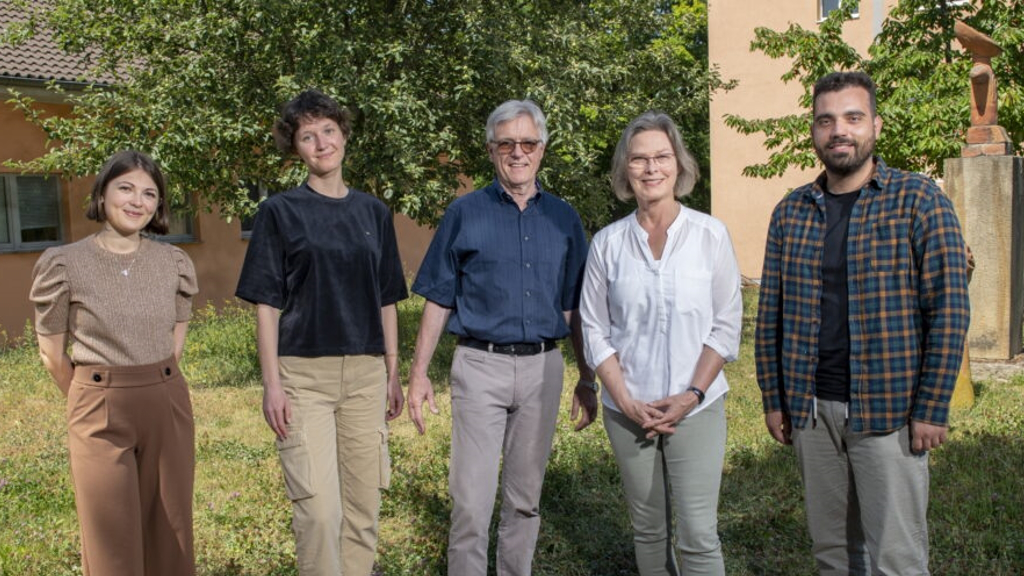
This project investigates how inter-individual variability in bilingual language processing can predict learning outcomes in a newly learnt language. Our starting assumption is that successful language learning presupposes efficient processing of the linguistic input. By examining bilingual speakers in both of their languages, we will test the hypothesis that individual language processing profiles yield different outcomes in a person’s learning of a novel language.
in phase 1:
Variability in bilingual language processing
PI(s): Prof. Dr. Harald Clahsen, PD Dr. Claudia Felser
This project examines how the processing of sentences and morphologically complex words in Turkish/German bilingual speakers is influenced by grammatical and non-grammatical factors.
A general conclusion from our studies on morphological processing is that the study of inter-individual variability leads to insights that remain hidden if only measures of central tendencies are evaluated. For example, we found that morphological parsing not only leads to faster processing, relative to control conditions, but also to more homogeneous performance, thus reducing inter-individual variability within a (bilingual) group of otherwise heterogeneous individuals.
In the domain of sentence processing, our experiments on non-categorical cases of subject-verb congruence in German and Turkish revealed some subtle differences between mono- and bilingual speakers. By using constraint-based models to model our results, we were able to gain insights into which of the factors determining monolingual language behaviour are also stable in bilingual language use and which are more variable.
Our experiments have brought us closer to the project’s goal to develop models that can account for both variability and consistency in bilingual language processing.
Members
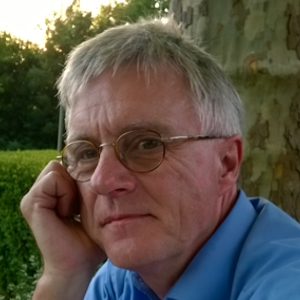 Prof. Dr. Harald Clahsen
Prof. Dr. Harald Clahsen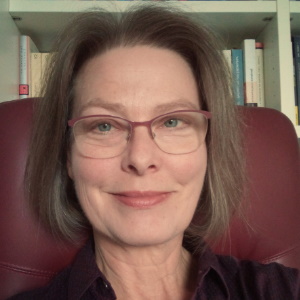 PD Dr. Claudia Felser
PD Dr. Claudia Felser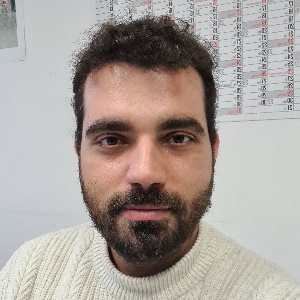 Ioannis Iliopoulos
Ioannis Iliopoulos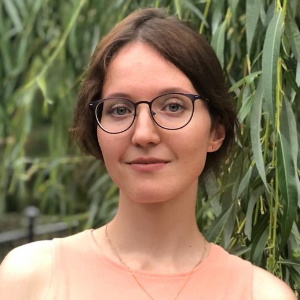 Aleksandra Trifonova
Aleksandra TrifonovaPublications
Types of Publications
- Peer-Reviewed: Papers, Journals, Books, Articles of the CRC
- Talk or Presentation: Talks, Presentations, Posters of the CRC
- SFB-Related: not produced in connection with the CRC, but are thematically appropriate
- Other: Papers, Journals, Books, Articles of the CRC, but not peer-reviewed
| Author(s) | Title | Year | Published in | Type | Links |
|---|---|---|---|---|---|
| Uygun, S., & Clahsen, H. | Morphological processing in heritage speakers: A masked priming study on the Turkish aorist. | 2021 | Bilingualism: Language and Cognition, 24(3), 415-426. DOI: 10.1017/S1366728920000577 | Peer-Reviewed | |
| Clahsen, H., & Jessen, A. | Variability and its limits in bilingual word recognition: A morphological priming study. | 2020 | The Mental Lexicon, 15(2), 295-329. DOI: 10.1075/ml.20013.cla | Peer-Reviewed | |
| Bosch, S., Veríssimo, J., & Clahsen, H. | Inflectional morphology in bilingual language processing: An age-of-acquisition study. | 2019 | Language Acquisition, 26(3), 339-360. DOI: 10.1080/10489223.2019.1570204 | Peer-Reviewed | |
| Ciaccio, L. A., & Clahsen, H. | Variability and Consistency in First and Second Language Processing: A Masked Morphological Priming Study on Prefixation and Suffixation. | 2020 | Language Learning, 70(1), 103-136. DOI: 10.1111/lang.12370 | Peer-Reviewed | |
| Felser, C., & Arslan, S. | Inappropriate choice of definites in Turkish heritage speakers of German. | 2019 | Heritage Language Journal, 16(1), 22-43. | Peer-Reviewed | |
| Uygun, S., & Felser, C. | Constraints on subject-verb agreement marking in Turkish-German bilingual speakers. | 2023 | Linguistic Approaches to Bilingualism 13(2), 190–217. DOI: 10.1075/lab.19081.uyg | Peer-Reviewed | |
| Felser, C., & Jessen, A. | Correlative coordination and variable subject–verb agreement in German. | 2021 | Languages, 6(2), 67. DOI: 10.3390/languages6020067 | Peer-Reviewed | |
| Jessen, A., & Schmitz, M. | Mehrsprachigkeit im Individuum. | 2018 | Praxis Sprache, 63(3), 156-161. DOI: 10.2443/skv-s-2018-56020180305 | Other | |
| Arslan, S., Lago, S., Yanilmaz, A., Drury, J. E., & Felser, C. | The processing of negative polarity items in Turkish-German bilinguals. | 2019 | In P. Guijarro-Fuentes & C. Suárez-Gómez (Eds.), Proceedings of GALA 2017: Language Acquisition and Development (pp. 117-133). Newcastle upon Tyne: Cambridge Scholars Publishing. | SFB-Related | |
| Clahsen, H., & Felser, C. | Some notes on the Shallow Structure Hyposthesis. | 2018 | Studies in Second Language Acquisition, 40(3), 693-706. DOI: 10.1017/S0272263117000250 | SFB-Related | |
| Clahsen, H., & Jessen, A. | Do bilingual children lag behind? A study of morphological encoding using ERPs. | 2019 | Journal of Child Language, 46(5), 955-979. DOI: 10.1017/S0305000919000321 | SFB-Related | |
| Felser, C. | Structure-sensitive constraints in non-native sentence processing. | 2019 | Journal of the European Second Language Association, 3(1), 12-22. DOI: 10.22599/jesla.52 | SFB-Related | |
| Felser, C. | Do processing resource limitations shape heritage language grammars? | 2019 | Bilingualism: Language and Cognition, 1-2. DOI: 10.1017/S1366728919000397 | SFB-Related | |
| Jessen, A., Fleischhauer, E., & Clahsen, H. | Morphological encoding in German children's language production: evidence from event-related brain potentials. | 2017 | Journal of Child Language, 44(2), 427-456. DOI: 10.1017/S0305000916000118 | SFB-Related | |
| Jessen, A., Veríssimo, J., & Clahsen, H. | Variability and consistency in L2 morphology: An EEG production study. | 2018 | Mental Lexicon, 13(2): 186-214. DOI: 10.1075/ml.18002.jes | SFB-Related | |
| Lago, S., & Felser, C. | Agreement attraction in native and non-native speakers of German. | 2018 | Applied Psycholinguistics 39: 619-647. DOI: 10.1017/S0142716417000601 | SFB-Related | |
| Lago, S., Gracanin-Yuksek, M., Şafak, D.F., Demir, O., Kırkıcı, B., & Felser, C. | Straight from the horse's mouth: Agreement attraction effects with Turkish possessors. | 2018 | Linguistic Approaches to Bilingualism. Advance online publication. DOI: 10.1075/lab.17019.lag | SFB-Related | |
| Reifegerste, J., Jarvis, R., & Felser, C. | Effects of aging on native and nonnative sentence processing: Evidence from subject-verb agreement in German. | 2020 | Journal of Memory and Language, 111, 104083. DOI: 10.1016/j.jml.2019.104083 | SFB-Related | |
| Uygun, S., & Gürel, A | Processing second language inflectional morphology. | 2018 | M.-A. Akıncı & K. Yagmur (Eds.), The Rouen Meeting: Studies on Turkic Structures and Language Contacts (pp. 189-204). Wiesbaden: Harrassowitz Verlag. | SFB-Related | |
| Uygun, S., & Gürel, A. | Does the processing of first language compounds change in late bilinguals? | 2020 | M. Schlechtweg (Ed.), The learnability of complex constructions: A cross-linguistic perspective (pp. 63-89). Berlin, Boston: De Gruyter Mouton. | SFB-Related | |
| Veríssimo, J., Heyer, V., Jacob, G., & Clahsen, H. | Selective Effects of Age of Acquisition on Morphological Priming: Evidence for a Sensitive Period. | 2018 | Language Acquisition, 25(3), 315-326. DOI: 10.1080/10489223.2017.1346104 | SFB-Related | |
| Arslan, S., Felser, C., & Uzuntaş, A. | Inappropriate use of definites in Turkish-German bilinguals. | 2017 | Poster presented at the Conference on Multilingualism (COM 2017), University of Groningen, Groningen, The Netherlands. 06 - 08 November. | Talk or Presentation | |
| Arslan, S., Lago, S., Felser, C., Yanılmaz, A., & Drury, J. E. | The processing of Negative Polarity Items in Turkish-German bilingual speakers. | 2017 | Paper presented at the Generative Approaches to Language Acquisition (GALA 13), Palma de Mallorca, Spain. 07 - 09 September. | Talk or Presentation | |
| Baltais, M., & Jessen, A. | Morphological decomposition by second language learners: A German masked priming study with Russian native speakers. | 2021 | Paper presented at the 34th Annual CUNY Conference on Human Sentence Processing, University of Pennsylvania, Philadelphia, PA, USA. 04 - 06 March. | Talk or Presentation | |
| Ciaccio, L. A., Bürki, A., & Clahsen, H. | Identifying individual profiles in the processing of morphological violations. An ERP study on German regular and irregular plural forms. | 2020 | Poster presented at the 12th Annual Meeting of the Society for the Neurobiology of Language (virtual edition). 21-25 Oct. | Talk or Presentation | |
| Clahsen, H. | Morphological constraints in language processing and language acquisition. | 2020 | Keynote talk at the Virtual Colloquium Series on Linguistics, The Linguistic Society of Korea, Seoul, Korea. 15 December. | Talk or Presentation | |
| Clahsen, H. | Morphology in Child and Adult Learners' Spoken Language Comprehension. | 2020 | Keynote talk at the Virtual Psycholinguistics Forum, The Chinese University of Hong Kong, HK. 07 October. | Talk or Presentation | |
| Clahsen, H. | The multilingual individual: Correcting some myths. | 2019 | Invited talk at the Conference ''Multilingualism in Ancient and Modern Contexts'', Stellenbosch University, Stellenbosch, South Africa. 25 - 27 September. | Talk or Presentation | |
| Clahsen, H. | Multilingualism in the Individual: A psycholinguistic perspective. | 2017 | Paper presented at the The Multilingualism and Diversity Lectures, University of Hildesheim, Hildesheim, Germany. 08 June. | Talk or Presentation | |
| Clahsen, H. | What language processing reveals about constraints on word formation. | 2017 | Invited talk at the Workshop ''Usage statistics, semantic transparency and segmentability in the selection, access and (de)composition of complex words'', University of Freiburg, Freiburg, Germany. 05 May. | Talk or Presentation | |
| Felser, C. | Gradience in subject-verb number agreement in German and Turkish. | 2021 | Invited talk at the Experimental Linguistics Seminar, Université Paris-Diderot, 4 June. | Talk or Presentation | |
| Felser, C. | The timing of structure-sensitive constraints during native and non-native sentence comprehension. | 2019 | Keynote talk at ConSOLE XXVII, Humboldt-Universität zu Berlin, Berlin, Germany. 21 February. | Talk or Presentation | |
| Felser, C. | Structure-sensitive constraints in non-native sentence processing. | 2018 | Keynote talk at the 28th Conference of the European Second Language Association (EUROSLA 2018), Westfälische Wilhelms-Universität Münster, Münster, Germany. 05 - 08 September. | Talk or Presentation | |
| Felser, C. | Illusions of grammaticality in non-native language processing. | 2017 | Invited workshop plenary talk at the Generative Approaches to Language Acquisition (GALA 13). Palma de Mallorca, Spain. 07 - 09 September. | Talk or Presentation | |
| Felser, C., & Jessen, A. | Correlative coordination and variable subject-verb agreement in German: An experimental study. | 2021 | Paper presented at the 43rd Jahrestagung der Deutschen Gesellschaft für Sprachwissenschaft (DGfS): Modell und Evidenz, University of Freiburg, Freiburg, Germany. 23 - 26 February. | Talk or Presentation | |
| Jessen, A. | Variabilität in der bilingualen Sprachverarbeitung. | 2018 | Paper presented at the 25. Treffen des Berliner Interdisziplinären Verbunds für Mehrsprachigkeit (BIVEM) Leibniz-Zentrum Allgemeine Sprachwissenschaft, Berlin, Germany. 01 February. | Talk or Presentation | |
| Jessen, A., Schwarz, L., & Clahsen, H. | Graded morphological generalization: A study of German inflection. | 2019 | Poster presented at the 12th Mediterranean Morphology Meeting, University of Ljubljana, Ljubljana, Slovene. 27 - 30 June. | Talk or Presentation | |
| Jessen, A., Schwarz, L., & Felser, C. | Resolving number agreement conflicts with pseudopartitives in L2 German. | 2020 | Poster presented at the Conference on Multilingualism - COM2020, University of Reading, Reading, UK. 23 - 25 June. | Talk or Presentation | |
| Jessen, A., Schwarz, L., & Felser, C. | Gradience in subject-verb number agreement: Can bilinguals tune in? | 2019 | Paper presented at the 2nd International Conference on Bilingualism, University of Malta, Valetta, Malta. 25 - 27 March. | Talk or Presentation | |
| Jessen, A., Veríssimo, J., & Clahsen, H. | Variability and consistency in L2 morphology. An EEG production study. | 2018 | Poster presented at the 11th International Conference on the Mental Lexicon, University of Alberta, Edmonton, AB, Canada. 25 - 28 September. | Talk or Presentation | |
| Uygun, S., & Clahsen, H. | Morphological generalization in heritage Turkish. | 2021 | Paper presented at the RUEG Conference - Dynamics of Language Contact: New Perspectives on Emerging Grammars, Variation and Change, Humboldt-Universität zu Berlin, Berlin, Germany. 22 - 23 February. | Talk or Presentation | |
| Uygun, S., & Clahsen, H. | Morphological priming in Turkish: Evidence from heritage speakers. | 2020 | Poster presented at the 26th Architectures and Mechanisms of Language Processing (AMLaP 2020), University of Potsdam, Potsdam, Germany. 03 - 05 September. | Talk or Presentation | |
| Uygun, S., & Clahsen, H. | Morphological variability in linguistic generalization: The Turkish aorist. | 2019 | Paper presented at the International Morphological Processing Conference (MoProc 2019), University of Tübingen, Tübingen, Germany. 4 - 7 November. | Talk or Presentation | |
| Uygun, S., & Felser, C. | Effects of subject position and animacy in Turkish subject-verb agreement. | 2021 | Paper presented at the RUEG Conference - Dynamics of Language Contact: New Perspectives on Emerging Grammars, Variation and Change, Humboldt-Universität zu Berlin, Berlin, Germany. 22 - 23 February. | Talk or Presentation | |
| Uygun, S., & Felser, C. | Subject-verb agreement marking in Turkish heritage speakers. | 2019 | Paper presented at the Workshop ''Turkish in Europe'', University of Hildesheim, Hildesheim, Germany. 12 July. | Talk or Presentation | |
| Uygun, S., & Felser, C. | Constraints on subject-verb agreement in German-Turkish bilingual speakers. | 2019 | Paper presented at the 12th International Symposium of Biligualism (ISB 12). Edmonton, AB, Canada. 24 - 28 June. | Talk or Presentation | |
| Uygun, S., & Gürel, A. | Processing of compounds in native and nonnative speakers of Turkish. | 2018 | Paper presented at the 2nd Conference on Interdisciplinary Approaches to Linguistic Theory (CIALT-2), Berlin, Germany. 25 - 27 October. | Talk or Presentation | |
| Uygun, S., & Gürel, A. | First language processing of compounds in late bilinguals. | 2018 | Poster presented at the 24th Architectures and Mechanisms of Language Processing (AMLaP 2018), Berlin, Germany. 06 - 08 September. | Talk or Presentation | |
| Jessen, A., Schwarz, L., & Felser, C. | Gradience in subject-verb number agreement: Can bilinguals tune in? | 2021 | Applied Psycholinguistics, 42, 1523-1551. DOI: 10.1017/S0142716421000357 | Peer-Reviewed | |
| Iliopoulos, I., & Felser, C. | Pragmatic factors facilitate Condition C violations cross-linguistically. | 2021 | Talk presented at the 12th International Conference of Experimental Linguistics, 11-13 October 2021, Athens, Greece. | Talk or Presentation | |
| Iliopoulos, I., & Felser, C. | Aspectual backgrounding facilitates Condition C violation in L1 and L2 comprehension. | 2022a | Poster presented at the GASLA 16, Trondheim, Norway, 12 - 14 May. | Talk or Presentation | |
| Felser, C., & Uygun, S. | Optional Plural Agreement in Heritage Turkish Speakers’ Verb Form Choices. | 2022 | Heritage Language Journal, 19(1), 1-30. DOI: 10.1163/15507076-bja10004 | Peer-Reviewed | |
| Ciaccio, L. A., & Veríssimo, J. | Investigating variability in morphological processing with Bayesian distributional models. | 2022 | Psychonomic Bulletin & Review. DOI: 10.3758/s13423-022-02109-w | Peer-Reviewed | |
| Uygun, S. | Processing pro-drop features in heritage Turkish. | 2022 | Frontiers in Psychology, 13. DOI: 10.3389/fpsyg.2022.988550 | Peer-Reviewed | |
| Iliopoulos, I., & Felser, C. | Pragmatic factors facilitate Condition C violations cross-linguistically. | 2021 | A. Botinis (ed.), Proceedings of 12th International Conference of Experimental Linguistics (pp. 125-128). Athens, Greece. DOI: 10.36505/ExLing-2021/12/0032/000505 | Other | |
| Iliopoulos, I., & Felser, C. | Aspectual backgrounding facilitates Condition C violation in L1 and L2 comprehension. | 2022b | Poster presented at the Workshop on L2 sentence and discourse processing, Universität zu Köln, Cologne, Germany. 18 November. | Talk or Presentation | |
| Uygun, S., Schwarz, L., & Clahsen, H. | Morphological generalization in heritage speakers: The Turkish aorist. | 2023 | Second Language Research, 39(2), 519–538. DOI: 10.1177/02676583211059291 | Peer-Reviewed | |
| Ciaccio, L. A., Bürki, A., & Clahsen, H. | Inter-individual variability in morphological processing: An ERP study on German plurals. | 2023 | Journal of Neurolinguistics, 67, 101138. DOI: 10.1016/j.jneuroling.2023.101138 | Peer-Reviewed | |
| Reifegerste, J., Garibagaoglu, A., & Felser, C. | Conceptual number in bilingual agreement computation: Evidence from German pseudo-partitives. | 2023 | Languages, 8(2), 147. DOI: 10.3390/languages8020147 | SFB-Related | |
| Clahsen, H., & Jessen, A. | Morphological generalization in bilingual language production: Age of acquisition determines variability. | 2021 | Language Acquisition, 28(4), 370–386. DOI: 10.1080/10489223.2021.1910267 | Peer-Reviewed | |
| Uygun, S. | Vulnerability in processing definiteness: The case of heritage Turkish. | 2023 | Frontiers in Psychology, 14, 1286407 DOI: 10.3389/fpsyg.2023.1286407 | Peer-Reviewed | |
| Trifonova, A., & Felser, C. | Individual differences in L1 and L2 speakers judgements of filler-gap dependency violations. | 2024 | Talk presented at the 26th International Symposium on Theoretical and Applied Linguistics, Thessaloniki, Greece, 19-21 April 2024. | Talk or Presentation | |
| Iliopoulos, I., & Felser, C. | Bilinguals brain responses to selectional and subcategorization violations during the processing of unbounded dependencies. | 2024 | Talk presented at the 26th International Symposium on Theoretical and Applied Linguistics, Thessaloniki, Greece, 19-21 April 2024. | Talk or Presentation | |
| Iliopoulos, I., & Felser, C. | Linking offline judgements and ERP responses in the L1 and L2 processing of filler-gap dependencies. | 2024 | Paper presented at the 5th International Symposium on Bilingual and L2 Processing in Adults and Children, Swansea University, Swansea, UK. 23 - 24 May. | Talk or Presentation | |
| Iliopoulos, I., & Felser, C. | Constraint interaction in L1 and L2 cataphoric pronoun resolution: c-command and event construal. | 2024 | Poster presented at the Conference on Multilingualism (COM 2024), Aix-Marseille University, Aix-en-Provence, France. 10 - 12 June. | Talk or Presentation | |
| Trifonova, A., & Felser, C. | Sensitivity to Filler–Gap Dependency Violations in the L1 vs. L2: Evidence from Speeded Judgement Tasks. | 2025 | Languages, 10(2), 21. DOI: 10.3390/languages10020021 | Peer-Reviewed |
